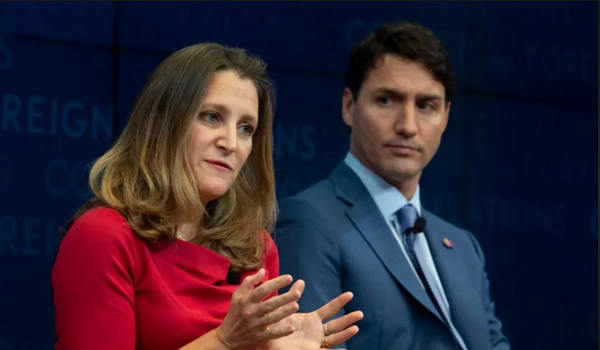Challenges faced by international students and housing are of great concern
In Nova Scotia, some students are waking up at 3 a.m. to make the four-hour drive to their school, Cape Breton University, in Sydney. Why? Because the school admitted far more students than could be reasonably housed nearby, and because those students want access to the job market in Halifax. Of those admitted, 80 per cent are international students.
Meanwhile, students in Ontario cities such as Brampton and Windsor live in cramped suburban homes, sometimes sharing rooms in conditions considered unsanitary and exploitative. And more students inevitably add pressure to the already stretched and expensive rental market, driven by Canada’s burgeoning population which this spring tipped over to 41 million.
Who’s responsible for housing these students? Ottawa seems to think, at least in large part, it’s the schools. In January, Immigration Canada made a vague statement that it would require postsecondary institutions provide “adequate” housing for students in the future, signalling that it would hold schools accountable, without actually defining what “adequate” means.
But who’s responsible is not the right question. Instead, we should be asking how to remove the incentives that created the problem in the first place.
The housing shortages and affordability issues aggravated by the boom in international student admittance in recent years are merely a symptom of a lack of oversight and planning in Canada’s immigration system. The start of resolving this problem can only begin when Ottawa takes decisive action to fix the incentive structure that led to this situation.
Let’s be clear: international students did not create the housing crunch, although as of late they have attracted some blame. Certainly, they added to it. But they are also victims of it, alongside other issues they face: predatory practices by bad-actor recruiters, misinformation about permanent residency, and false promises of guaranteed employment.
Solving the problem will require co-operation from postsecondary institutions and provincial governments, but the onus ultimately lands on the federal government to amend the conditions that put such pressures on the housing market in the first place.
International students are attracted to Canada’s world-class educational opportunities, but for many, there’s an unspoken secondary purpose, too: a chance at a work permit and at least a perceived fast track to permanent residency.
Meanwhile, universities cash in on foreign-student-rate tuition – as much as five times higher than domestic rates – and relieve pressure on provincial governments to provide more funding.
The federal government has started to nibble around the edges of this problem. In January, Immigration Minister Mark Miller said Ottawa will cap the number of students coming in and limit the number of postgraduation work permits available, which are a pathway to permanent residency. And in March, it said that graduates of public-private partnership programs (which have fuelled a substantial proportion of the recent international student spike) would not automatically qualify for a postgraduation work permit, though they are not prevented from applying for other types of permits.
Those are positive steps. But the belated reaction still fails to fully address the underlying incentives driving the boom.
Provinces have a role to play, too, especially in Ontario, which accepts the most students and where the effects on affordable housing are most visible.
In cutting funding for postsecondary institutions and capping domestic tuition fees, Ontario Premier Doug Ford’s government pushed school administrators to bring in more international students to make up for budget shortfalls. Without more funding or higher tuition rates, schools will continue to depend on revenue from foreign students.
Ultimately, Ottawa must act to fix the incentive structure that has contributed to the lack of affordable housing. As we’ve argued before, students should be limited to on-campus work. Ottawa should not guarantee permanent residency for international students, although they should be able to apply. Decisive action, which to date has been lacking, will eliminate the incentives that have distorted Canada’s international student system.
That action starts with asking the right question: how can Ottawa fix the mess it has made?
This article was first reported by The Globe and Mail













